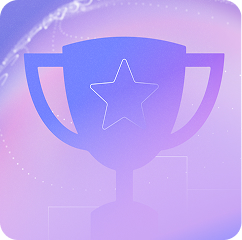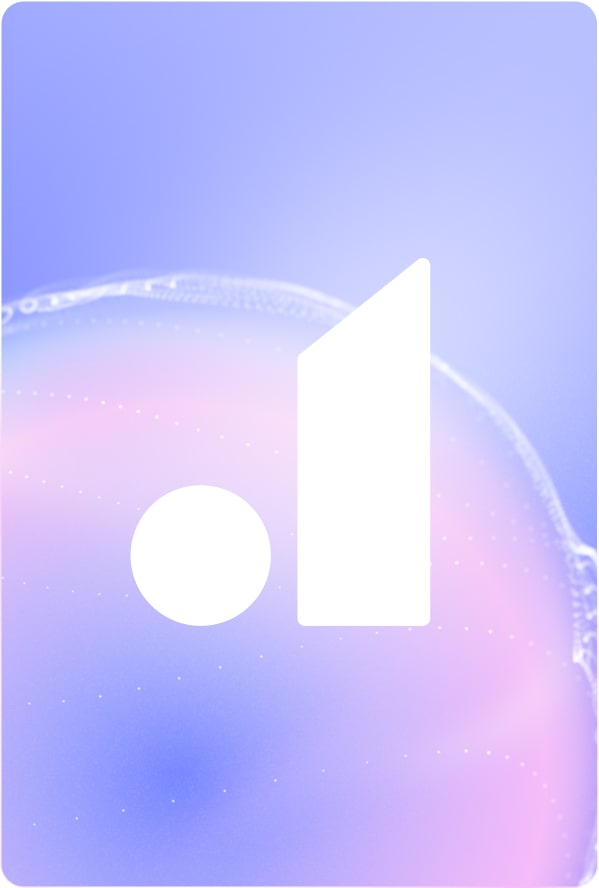
// Recruitment Strategies, Sourcing Strategies
Your Admin Work Is Killing Your Placements — Here’s How AI Saves You
21/07/2025
14 MIN
Agency recruiters face increasing pressure to deliver faster, better placements, often with fewer resources and tighter margins. Yet a significant portion of each week is still consumed by administrative work. Tasks such as updating CRMs, formatting CVs, chasing feedback, and managing recruiter meetings.
These tasks, while necessary for your hiring process, do not contribute directly to your revenue and are quietly limiting recruiter productivity and placement potential.
For many UK-based recruitment agencies and hiring managers, administrative overhead now represents one of the most persistent barriers to growth. Recruiters routinely spend 10 to 15 hours per week on manual tasks that could be automated. This is time that could be used to build client relationships, engage candidates, or close roles.
This is where AI recruiting software delivers meaningful impact.
By leveraging AI-powered recruiting tools designed specifically for agency workflows, teams can significantly reduce the manual workload. From automating candidate documentation to intelligently managing inbox traffic, AI agents are helping recruiters refocus on high-value work.
In this article, we will explore:
- Which recruiter admin tasks consume the most time
- How AI recruiting software works in practice
- Which tasks can you automate today
- The real ROI in time and cost savings
- Practical steps to begin implementation
The opportunity is clear. Reduce admin, increase placements, and future-proof your agency’s operations.
What recruiter admin tasks are eating up your week?
Recruitment is a relationship-driven business, yet agency recruiters often find themselves spending more time on administration than on candidate or client engagement. While every task may seem essential, many consume significant time without adding proportional value to the recruiting process.
Below are some of the most common admin activities that dominate a typical week for UK agency recruiters:
1. CV formatting and candidate write-ups
Preparing candidate CVs to meet specific client templates, editing for consistency, and writing summaries can take up hours each week. These are repetitive tasks that require attention to detail but not strategic thinking.
2. CRM and ATS updates
Keeping systems up to date with candidate notes, statuses, communication logs, and activity tracking is critical for compliance and team visibility. However, these updates often require duplicate data entry and manual uploads, which add up quickly.
3. Scheduling interviews and follow-ups
Coordinating the interview process between job seekers and clients, sending calendar invites, confirming attendance, and following up for feedback can be an ongoing time drain, particularly when multiple time zones or stakeholders are involved.
4. Inbox and communication management
Recruiters spend a substantial amount of time reviewing CV submissions, replying to emails, filtering qualified candidates, and flagging priority items. Much of this work could be automated or delegated with the right tools, fast-tracking your candidate sourcing efforts and letting you focus on other aspects of your talent acquisition process.
5. Internal reporting and pipeline tracking
Weekly activity summaries, placement tracking, and forecast updates are essential for agency performance management but often involve pulling data manually across systems. This is where customised executive search reports can help you match candidates to job descriptions and present your clients with the top candidates quickly and efficiently.
These tasks often require context switching and can fragment a recruiter’s focus. The cumulative effect is lost productivity and delayed placements for your entire recruiting team.
Understanding where time goes is the first step toward reclaiming it. With a clear view of the tasks that consume the most hours, talent acquisition professionals can begin identifying opportunities for automation that improve efficiency without compromising quality or control.
Cut your admin in half and focus on candidate engagement instead. Do it with Atlas >>
How does AI-powered automation work in recruitment?
AI recruiting software goes beyond simple task automation. It involves intelligent systems that can interpret, act on, and improve repetitive processes without constant human intervention. For agency recruiters, this means offloading manual work while maintaining accuracy, compliance, and control.
Traditional recruitment automation tools rely on fixed workflows or triggers. For example, an ATS may be set to send a templated email when a candidate reaches a certain stage. While useful, these tools are limited to rule-based actions and require rigid setup compared to automated outreach campaigns.
In contrast, AI-driven features bring flexibility and contextual awareness. AI agents can:
- Understand unstructured data, such as CVs and emails
- Make decisions based on previous interactions
- Adjust to changing conditions or inputs in real time
For example, an AI agent can conduct initial resume screening, extract key information from a CV, write a professional candidate summary tailored to a client’s brief, and update the CRM, all without human input. It can then identify gaps in the candidate profile and follow up via email to request missing details.
This level of automation does not eliminate the recruiter’s role. Rather, it removes the burden of repetitive work, enabling recruiters to focus on relationship-building with their talent pool and strategic tasks that directly impact revenue.
AI-driven recruiting tools can also learn from recruiter preferences. Over time, it improves output quality by adapting to feedback and style choices, reducing the need for manual corrections across different hiring teams.
The result is more consistent execution, faster turnaround times, and improved scalability across your recruitment desk or agency.
By understanding how AI recruiting automation functions at a practical level, agency recruiters can make more informed decisions about which tools to adopt and how to integrate them effectively within their workflow.
What tasks can recruiters automate with AI recruiting tools?
Many recruitment agencies hesitate to adopt AI because the scope can feel overwhelming. The most effective way to begin is by identifying repeatable, high-effort tasks that offer a clear return when automated.
Below are some of the most impactful areas agency recruiters can automate immediately:
CV formatting and candidate summaries
AI tools can convert raw CVs into client-ready formats while preserving essential content and structure. Some platforms also generate tailored summaries aligned to role requirements, saving recruiters time on candidate positioning.
Interview scheduling and calendar coordination
AI agents can handle availability checks, calendar invites, rescheduling, and reminders by integrating with email and calendar systems that help you manage candidate outreach. This eliminates the back-and-forth often involved in booking interviews. Best of all, your applicant tracking system can transcribe candidate interviews the moment you’re done with them.
CRM and ATS data entry
From parsing email threads into structured notes to updating candidate stages, AI can manage routine system interactions. This helps maintain data quality without draining recruiter capacity. And with conversational AI such as the one present in Atlas, you can focus on matching global talent to your clients’ vacancies without losing time on recruitment marketing or manual outreach.
Candidate matching follow-ups and inbox triage
AI can draft and send follow-up emails, confirm availability, or chase feedback. It can also sort incoming messages by urgency and context, flagging priority items and archiving irrelevant ones.
Lead sourcing and profile enrichment
Automated agents can surface potential candidates or clients from job boards, LinkedIn, or your AI-powered CRM. They can fill in missing profile fields, add tags, and score candidate relevance.
These automations do not require a full system overhaul. Most tools can integrate with your existing platforms and start delivering value within days.
By focusing on clearly defined use cases, agencies can adopt AI recruiting automation incrementally and demonstrate early success without disrupting operations.
All the recruitment automation tools you need, now under one roof. Try Atlas >>
How much time (and money) can you really save with an AI recruiting software?
The administrative workload in your recruitment process is not only time-consuming, it is expensive. By quantifying the hours spent on repetitive tasks and applying basic cost calculations, the financial impact becomes clear.
Let’s consider a common scenario. A recruiter spends approximately 10 to 15 hours per week on non-billable admin. At an average loaded cost of £40 per hour, this equates to £400 to £600 in lost productivity per recruiter each week.
For an agency with 10 recruiters, that’s up to £6,000 per week or more than £300,000 per year in hidden operational costs.
These figures do not account for the opportunity cost of delayed placements, reduced business development activity, as well as lost or passive candidate engagement. In competitive markets, time is often the deciding factor in securing top job candidates and winning client confidence.
AI recruiting automation helps recover that time by handling high-frequency, low-complexity tasks with speed and precision. CV formatting, CRM updates, email follow-ups, and scheduling can all be managed with minimal human input. The time saved can be reinvested in strategic work that drives revenue.
Even partial automation, such as automating just CV formatting and calendar coordination, can yield immediate returns. Agencies often see time savings of 25 to 30 per cent in the first month alone.
In a margin-driven business like recruitment, operational efficiency directly supports profitability. By quantifying time and cost savings, agency leaders can build a strong business case for adopting AI recruiting automation as a strategic investment to drive their top talent forward.
What would you do with 10 extra hours per week?
Reclaiming 10 hours each week is not just a productivity win; it is a strategic advantage. In recruitment, time directly correlates with outcomes. The more time recruiters can allocate to high-value activity, the stronger their performance across placements, client retention, and revenue.
What can you achieve with 10 additional hours a week as a recruiter?
Improved candidate experience
Spend more time sourcing candidates and preparing interviews, delivering detailed candidate screening feedback, and building long-term relationships with AI-powered outreach campaigns. Stronger engagement improves conversion rates and candidate loyalty.
Focus on business development
Reach out to new prospects about available job openings, nurture existing client accounts, or follow up on past opportunities in your talent pool with BD features in your ATS. More client-facing time translates into increased job flow and more exclusive roles.
Increased candidate engagement and placement
Respond faster to client briefs, move candidates through the funnel more efficiently, and close roles ahead of competitors. Speed and consistency are key differentiators in today’s market.
Contribute to strategic initiatives
Participate in team training, help improve internal processes, or support employer branding efforts. These are often deprioritised due to workload but are critical for agency growth.
Reduce stress and improve focus
A lighter admin load improves job satisfaction, reduces burnout, and supports sustainable performance. Recruiters who are not constantly context-switching are more focused and effective in discovering and placing the most qualified candidates.
These outcomes are not hypothetical. Agencies adopting AI recruiting automation consistently report more engaged recruiters, faster time-to-fill, and higher overall productivity.
By removing administrative barriers, recruiters are free to focus on what they do best: building relationships and placing quality candidates. Try Atlas for free >>
How do you start implementing artificial intelligence in your agency?
Integrating AI recruiting automation into your agency’s recruiting cycle does not require a full technology overhaul. In fact, the most successful implementations begin with small, focused steps that deliver quick wins and build internal momentum.
Here is a structured approach to get started with AI-powered tools:
1. Audit your current admin workload
Start by identifying where recruiters are spending the most time on non-revenue-generating activities. Use time tracking tools or simple weekly logs to capture data across tasks like candidate resume parsing, interview scheduling, and CRM updates.
2. Prioritise repetitive and time-intensive tasks
Look for high-frequency, low-complexity processes that are easy to standardise. These are ideal candidates for automation because they offer fast results and minimal operational risk.
3. Select a recruiter-first applicant tracking system
Choose platforms built specifically for recruitment workflows. Avoid generic automation tools that require extensive setup or developer support. That way, you’ll always build toward smart automation and less admin, not tedious manual tasks and CRM updates
4. Pilot your new AI assistant with a single team or function
Start small to manage change effectively. For example, automate CV formatting for one desk or use AI scheduling tools with a single client account. Measure the impact and gather recruiter and candidate feedback before scaling.
5. Document success and scale strategically
Capture key metrics such as time saved, placement speed, or task accuracy. Use these results to build buy-in across the agency and develop a broader automation strategy. Powered by centralised candidate data, you’ll discover passive candidates and make more informed hiring decisions.
Adopting AI recruiting automation is not just about technology. It is about creating a more efficient, focused, and scalable recruiting operation with streamlined candidate sourcing for your recruitment teams. With the right tools and approach, agencies can reduce admin workload without disrupting delivery or culture, all while improving their candidate journey across every touchpoint.
Frequently Asked Questions (FAQs) about AI and automation in agency recruitment
Automation refers to rule-based systems that follow a fixed set of instructions, such as sending a confirmation email when a candidate reaches a certain stage. AI, on the other hand, can interpret unstructured data, make context-based decisions, and adapt over time. This makes AI better suited to the varied and fast-paced nature of recruitment.
No. AI is designed to support recruiters in all types of talent acquisition teams, not replace them. It handles repetitive and time-consuming tasks, allowing recruiters to focus on high-value work like client development, candidate care, and strategic hiring advice.
Many agencies begin seeing measurable time savings within the first few weeks. The speed of impact depends on the tasks automated and how well the tools are integrated into existing workflows.
Yes, provided the technology is built with compliance in mind. Look for platforms that are GDPR-compliant and offer data handling features appropriate for recruitment. Security and transparency should be key selection criteria.
Start with a small pilot focused on a single task or workflow. Show tangible results and let recruiters compare their experience before and after. Involving recruiters in the evaluation process also helps build trust and buy-in. AI recruiting automation is most effective when it complements the recruiter’s role. With the right use cases and careful rollout, it enhances performance without disrupting the human side of recruitment.
Embrace AI recruiting automation with Atlas as your end-to-end ATS
Administrative work has long been accepted as a necessary part of recruitment, but it is increasingly clear that it comes at a cost. For agency recruiters, excessive admin reduces time spent on client engagement, candidate relationships, and ultimately, placements.
AI recruiting automation offers a practical and immediate solution. It enables recruiters to offload time-consuming, repetitive tasks while improving accuracy, speed, and consistency. From CV formatting and CRM updates to scheduling and candidate follow-ups, AI agents help streamline daily workflows and reclaim valuable time.
By adopting the best AI recruiting tools, agencies can increase productivity, improve performance metrics, and create a more scalable operation across their talent teams without compromising service quality.
Atlas is built specifically to help agencies achieve this. Our platform combines powerful AI recruiting automation with recruiter-friendly design, integrating seamlessly into existing systems and workflows. Whether you’re starting with one task or transforming your entire process, Atlas gives your team the tools to operate at a higher level.
If you’re ready to reduce admin, improve placements, and future-proof your agency, Atlas is ready to support you. Let’s talk about automating your workflow >>








